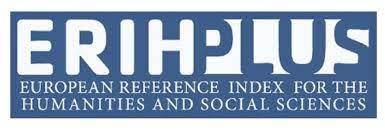მართლმადიდებლობა თანამედროვე ბალკანეთის ნახევარკუნძულზე და მისი პოლიტიკური ასპექტები
DOI:
https://doi.org/10.52340/jd.2022.15.06.04ანოტაცია
There are many aspects related to the Balkans of the 20th-21st centuries, which can be discussed in a global context. The aim of this
paper is to analyze the local Orthodox Churches of Balkans and the relationship between the Church and the state there.
In the twentieth century, the interests of a number of political leaders, forces and ideologies intersected on the Balkans. For example, The Balkan Peninsula was a very important strategic place in the Soviet Union, therefore, it actively tried to spread its influence on the political processes developed there, which directly affected the local Orthodox churches. On the other hand, In the 20th century, a number of countries of the Balkans were ruled by dictatorial and authoritarian regimes, whose leaders had significant power (Enver Khoja, Josip Broz Tito, Todor Zhivkov, Slobodan Milosevic, Nicolae Ceausescu, etc.), which also left its mark on the local Orthodox churches. This paper discusses what kind of relations were among the Orthodox clergy and the state in Balkans, to what extent the security services interfered in the Church’s activities and how all this was reflected in the present day.
Downloads
ჩამოტვირთვები
გამოქვეყნებული
როგორ უნდა ციტირება
გამოცემა
სექცია
ლიცენზია
საავტორო უფლებები (c) 2023 Guram Lursmanashvili

ეს ნამუშევარი ლიცენზირებულია Creative Commons Attribution-ShareAlike 4.0 საერთაშორისო ლიცენზიით .









